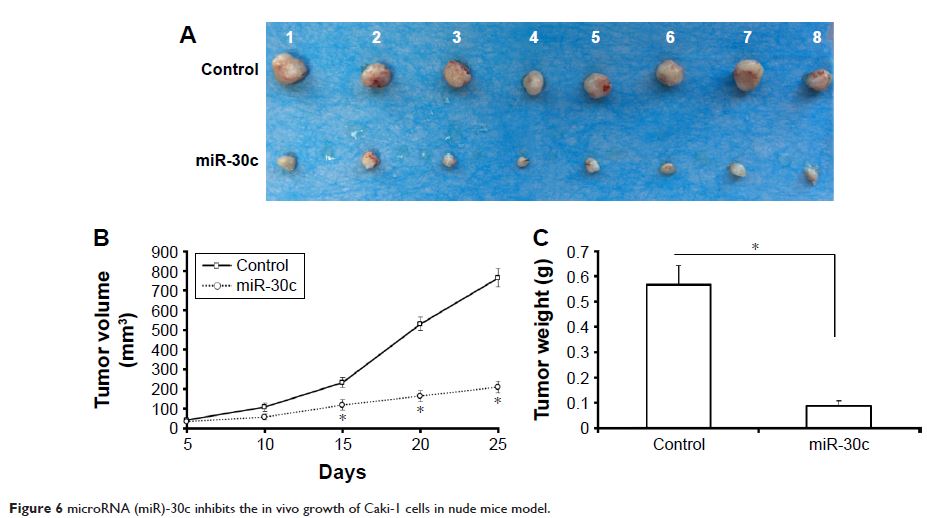109568
论文已发表
注册即可获取德孚的最新动态
IF 收录期刊
- 3.4 Breast Cancer (Dove Med Press)
- 3.2 Clin Epidemiol
- 2.6 Cancer Manag Res
- 2.9 Infect Drug Resist
- 3.7 Clin Interv Aging
- 5.1 Drug Des Dev Ther
- 3.1 Int J Chronic Obstr
- 6.6 Int J Nanomed
- 2.6 Int J Women's Health
- 2.9 Neuropsych Dis Treat
- 2.8 OncoTargets Ther
- 2.0 Patient Prefer Adher
- 2.2 Ther Clin Risk Manag
- 2.5 J Pain Res
- 3.0 Diabet Metab Synd Ob
- 3.2 Psychol Res Behav Ma
- 3.4 Nat Sci Sleep
- 1.8 Pharmgenomics Pers Med
- 2.0 Risk Manag Healthc Policy
- 4.1 J Inflamm Res
- 2.0 Int J Gen Med
- 3.4 J Hepatocell Carcinoma
- 3.0 J Asthma Allergy
- 2.2 Clin Cosmet Investig Dermatol
- 2.4 J Multidiscip Healthc

microRNA-30c 通过慢病毒载体的表达抑制增殖,并增强具有高度侵略性的 ccRCC Caki-1 细胞对抗癌剂的敏感性
Authors Yang HL, Song EL, Shen GR, Zhu TH, Jiang TW, Shen H, Niu LP, Wang B, Lu ZY, Qian JP
Received 25 June 2016
Accepted for publication 29 November 2016
Published 2 February 2017 Volume 2017:10 Pages 579—590
DOI https://doi.org/10.2147/OTT.S115791
Checked for plagiarism Yes
Review by Single-blind
Peer reviewers approved by Dr Chang Liu
Peer reviewer comments 4
Editor who approved publication: Dr Tohru Yamada
Abstract: The clear cell renal cell carcinoma (ccRCC) is one of the most fatal
urologic tumors, and the prognosis remains very poor for advanced or metastatic
ccRCC. This study reveals the roles of microRNA (miR)-30c in regulating a
highly aggressive ccRCC cell line proliferation by targeting MTA-1, which is a
key mediator for human cancer metastasis. Results from quantitative real-time
polymerase chain reaction showed that the expression of MTA-1, the target of
miR-30c, was significantly higher in metastatic ccRCC specimens than in
nonmetastatic ccRCC or nontumor specimens. Accordingly, endogenous miR-30c is
at a much lower level in highly aggressive ccRCC Caki-1 cells than nontumor or
ccRCC cell lines. Expression of miR-30c via lentivirus vector inhibits the
proliferation, anchorage-independent growth, in vitro invasion or migration, or
in vivo growth of Caki-1 cells by repressing MTA-1 protein expression. miR-30c
also enhances the sensitivity of Caki-1 cells to anticancer agents, including
sorafenib and paclitaxel. These data reveal the potential application of
miR-30c and that its targeting gene, MTA-1, would be a potential target in
metastatic ccRCC treatment.
Keywords: ccRCC, miR-30c, MTA-1, sorafenib,
paclitaxel, Caki-1
